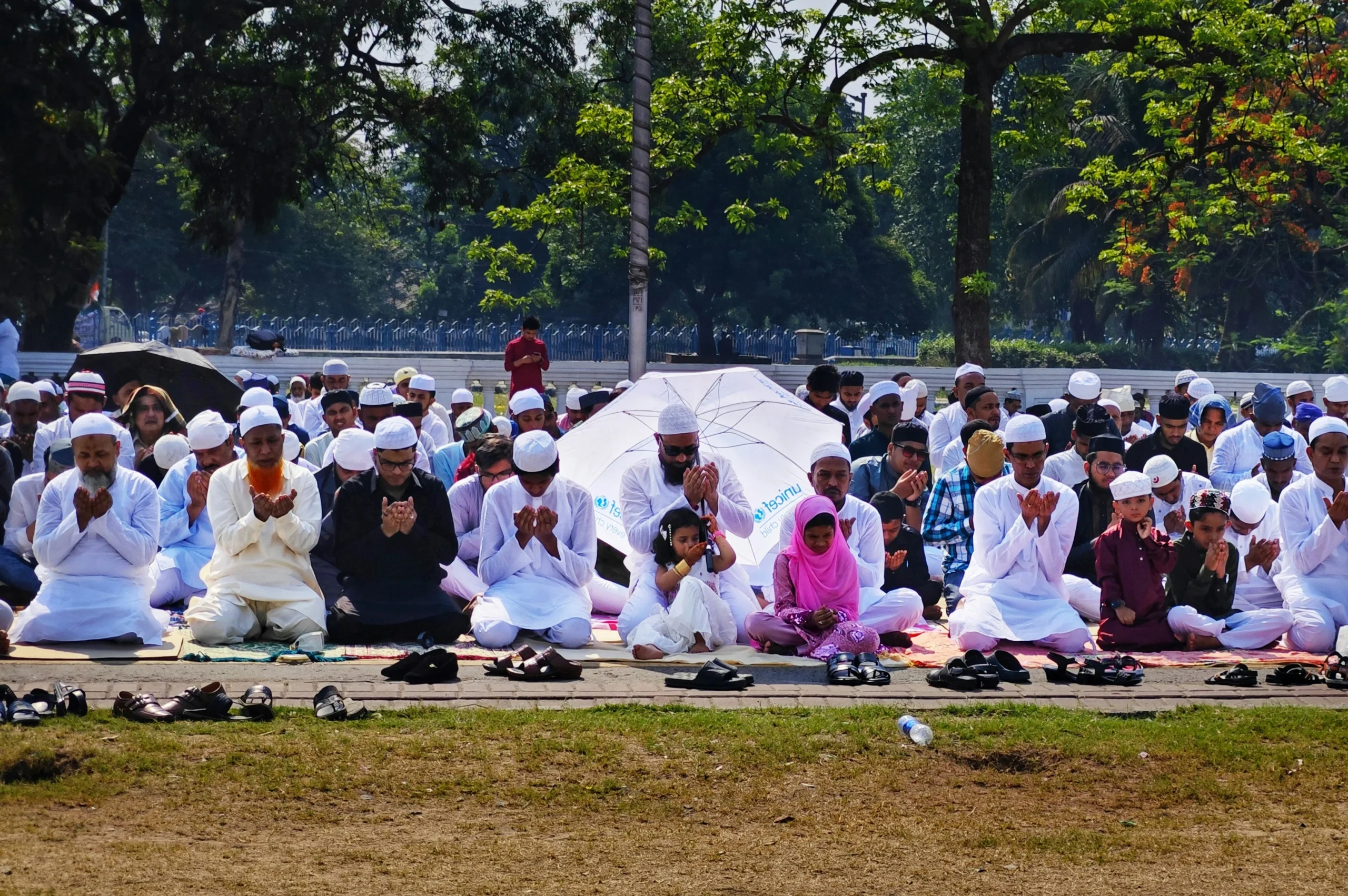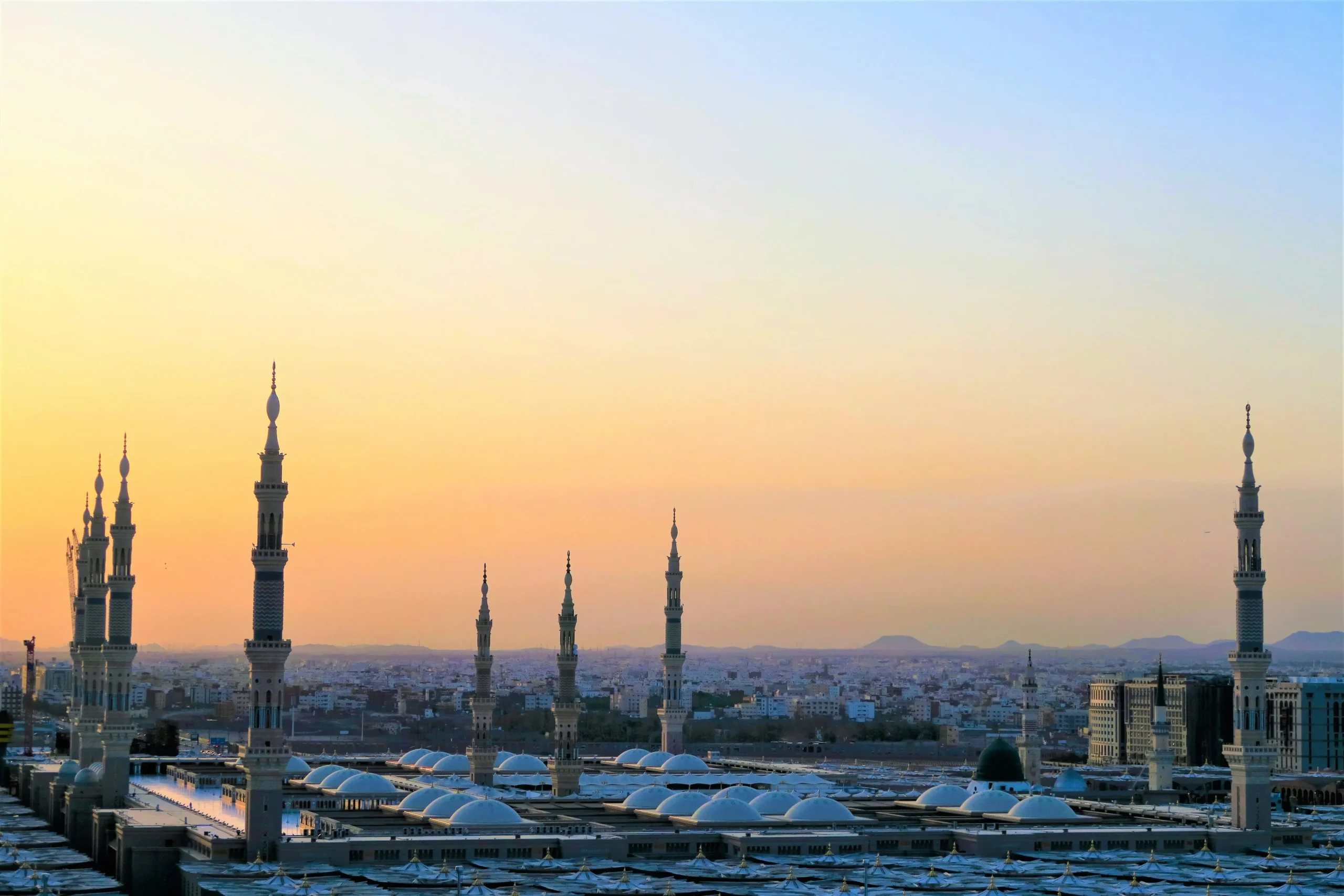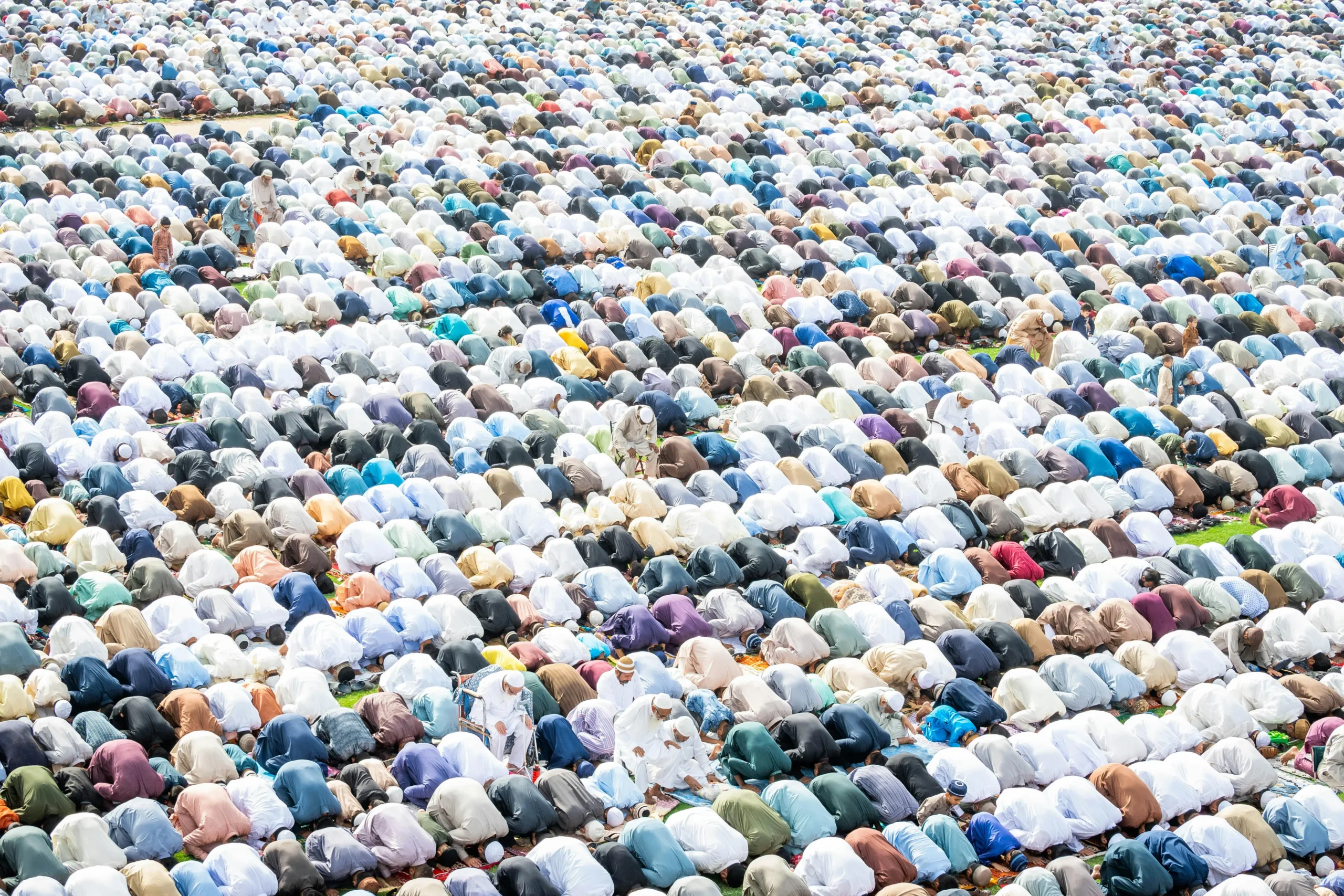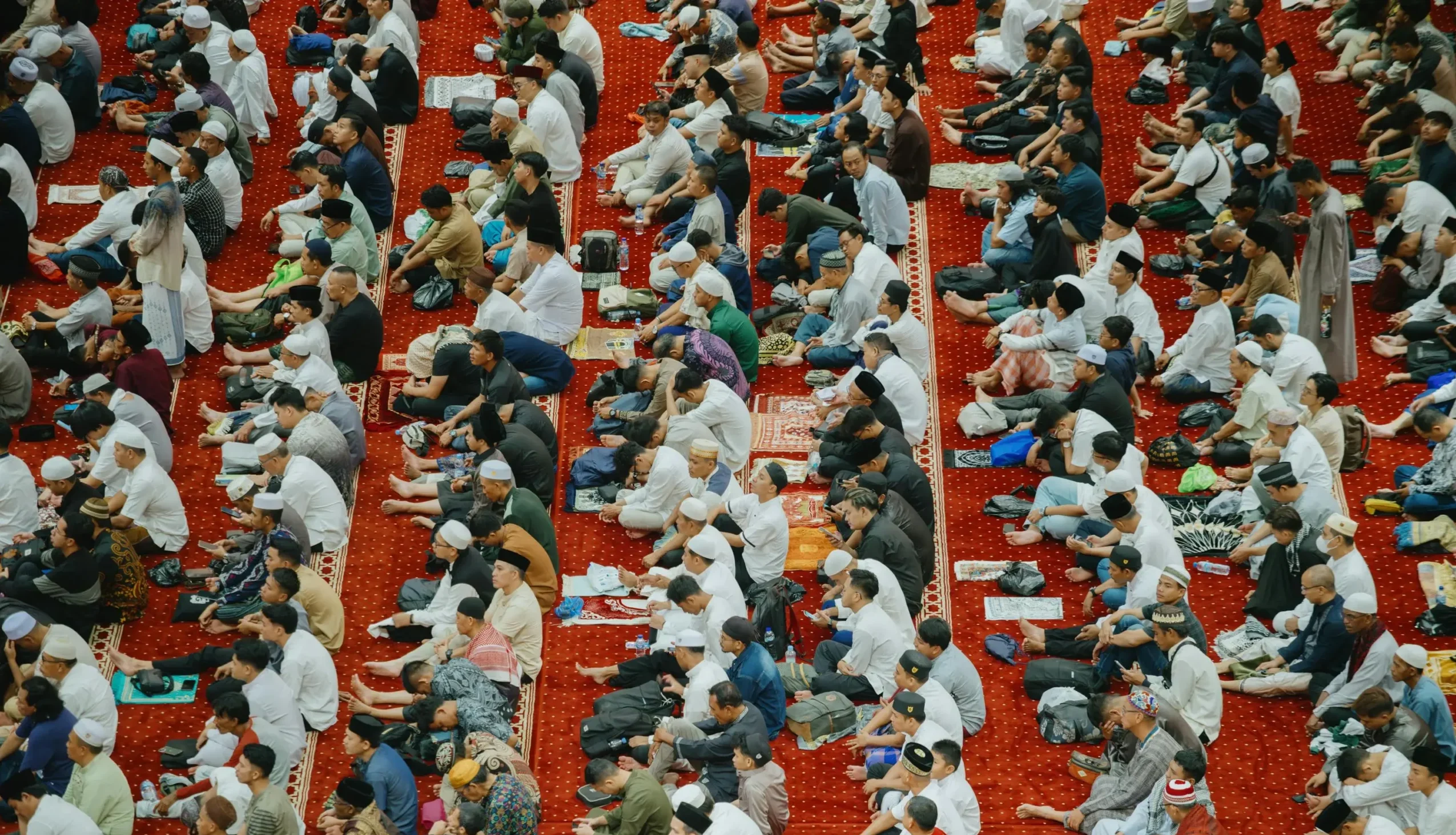When is Eid al-Fitr 2026? Your Live Countdown to the Festival of Breaking Fast



A joyful feast after a month of faith
Day(s)
:
Hour(s)
:
Minute(s)
:
Second(s)
When Is Eid al-Fitr 2026?
The festival of Eid al-Fitr, the Festival of Fast-breaking, is an important religious holiday celebrated by Muslims worldwide that marks the end of Ramadan, the Islamic holy month of fasting. The holiday celebrates the conclusion of the 29 or 30 days of dawn-to-sunset fasting during the entire month of Ramadan. Looking ahead to the year 2026, Eid al-Fitr for the year 2026 is celebrated/ observed on sundown of Thursday, March 19th ending at sundown on Friday, March 20th. There are 8 months and 9 days remaining until Eid al-Fitr 2026, which is on Friday, March 20, 2026. This countdown builds anticipation for that significant Friday, March 20, 2026.
In 2026, Eid ul-Fitr falls on Saturday 21 March
However, it’s crucial to understand the nuances of the lunar calendar. It’s also noted that for 2026, Eid ul-Fitr falls on Saturday, March 21. This potential one-day difference between the 20th and the 21st of March is not an error but a reflection of the tradition of physically sighting the new moon, which can vary by location and makes the final declaration an exciting moment each year.
Is Eid-ul-Fitr a Public Holiday?
Yes, Eid al-Fitr is a public holiday in Pakistan.Here in Pakistan, Eid al-Fitr 2026 not just as a sacred time, but also as a national event. It is a major public holiday. It will most likely be officially declared a three-day holiday, with projections setting the dates from March 20 to march 23. During this welcome break, most businesses and schools will be closed, granting the general public the essential time off needed to properly celebrate with family, friends, and the community.
What is Eid al-Fitr?
Eid al-Fitr is an Islam festival that marks the end of Ramadan. It is celebrated in the month of Shawwal, based on the Islamic calendar, which is a lunar calendar. The festival follows fasting and includes communal prayer (ṣalāt) at daybreak. The celebration involves official receptions, private visits, greetings, presents, new clothes, and grave visits. It is distinct from Eid al-Adha, Mawlid, and Ashura.
What Does Eid al-Fitr Mean
Eid means a festival. Eid al-Fitr is the festival of breaking the fast after Ramadan. It marks the end of fasting from dawn to dusk. It symbolizes joy, celebration, and Allah’s pleasure. It reflects a duty to Allah and includes Eid prayers. The day is spent with loved ones, enjoying good food, sharing blessings, helping the less fortunate, and embracing the holy occasion with worship, devotion, happiness, and gratitude.
What is the Time of Eid Prayer
Eid Salah is performed in the morning, after the Fajr prayer, on the first day of Eid.Muslims gather in large numbers at mosques or open grounds to offer this special prayer.The prayer is usually held soon after sunrise, before the time of Dhuhr begins.It is offered in Jama’ah (congregation), which reflects unity and brotherhood in the community.The exact time of the prayer may vary depending on the city and local mosque schedules.Imams often announce the time of Eid Salah a day or two before Eid for convenience.Attending the prayer early is recommended, as it gives time for Takbeerat before the Salah.
Eid al-Fitr Festival (2025–2030)
| Year | Date (Gregorian) | Day |
|---|---|---|
| 2025 | March 31, 2025 | Monday |
| 2026 | March 20, 2026 | Friday |
| 2027 | March 10, 2027 | Wednesday |
| 2028 | February 26, 2028 | Sunday |
| 2029 | February 14, 2029 | Wednesday |
| 2030 | February 3, 2030 | Sunday |
* Eid al-Fitr marks the end of Ramadan, the holy month of fasting in Islam.
FAQs
When exactly is Eid al-Fitr?
Eid al-Fitr, the “Festival of Breaking the Fast,” is celebrated on the first day of Shawwal, the tenth month of the Islamic lunar calendar. The exact date is not fixed in the Gregorian calendar and depends on the sighting of the new crescent moon. This means the date varies from country to country and year to year. For example, predicted dates are:
- 2025: Around March 31
- 2026: Around March 20
- 2027: Around March 10
What happens if Eid falls on a Friday?
This is a matter of scholarly discussion. According to many scholars, if a person attends the Eid prayer on a Friday, the obligation to attend the Jumu’ah (Friday congregational) prayer is lifted for them. However, they must still pray the Dhuhr (midday) prayer. The Imam of the mosque is still required to hold the Jumu’ah prayer for those who did not attend the Eid prayer or wish to attend both. It is best to follow the guidance of your local scholars.
How to wish someone a happy Eid?
he most common and traditional greeting is “Eid Mubarak” (Blessed Eid). You can also say “Taqabbalallahu Minna wa Minkum” (May Allah accept from us and from you [our fasts and deeds]). A simple “Happy Eid” is also perfectly acceptable and widely understood.
Will there be three Eids in 2030?
This is a common point of confusion. Because the Islamic calendar is about 11 days shorter than the Gregorian calendar, Ramadan will occur twice in the year 2030. However, this does not mean there will be three Eids in that year.
In the Gregorian year 2030, there will be two Eids:
- Eid al-Fitr: Around February 5, 2030.
- Eid al-Adha: Around April 14, 2030.
The second Ramadan of 2030 will start in late December, and its corresponding Eid al-Fitr will occur in January 2031.
Do we fast on Eid al-Fitr?
No, it is haram (forbidden) to fast on the day of Eid al-Fitr. The day is meant for celebration and marks the end of the month-long fast of Ramadan. It is recommended to eat something, usually dates, before heading to the Eid prayer to signify that the fasting period is over.
How do you respond to "Eid Mubarak"?
When someone wishes you “Eid Mubarak,” a warm and appropriate response is “Khair Mubarak”, which conveys that you wish goodness back to them. You can also simply say “Eid Mubarak to you too” or reply with the same greeting, “Eid Mubarak.”
What time do we pray Eid al-Fitr?
The Eid al-Fitr prayer is performed in congregation in the morning. The specific time is after sunrise and before the Dhuhr (midday) prayer time begins. Typically, it is held about 15 to 30 minutes after the sun has fully risen. Local mosques and community centers will announce the exact prayer time.

